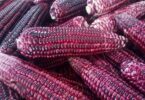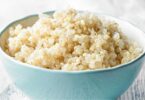If you’re affected by fatty liver, you are not alone. There is help and a path to better health. This article will uncover the best diet for you and explain how you can make changes to improve your liver health. We’ll also provide an understanding of fatty liver and what type of diet works best to reduce the damaging effects of fatty liver. Come and join us on this journey from liver ill-health to better health.
1. What is Fatty Liver?
An accumulation of fat in the liver, known as fatty liver, has become increasingly common in recent years. Fatty liver is a condition occurring when large amounts of fat stored in your liver exceeds 5–10% of your liver’s weight. It can be the result of obesity, diabetes, high alcohol consumption, or other conditions. While fatty liver disease can be reversed, proper diet and lifestyle choices are important for preventing it.
The Six Excercises to Follow for Fatty Liver:
- Consume fewer simple carbohydrates. While whole grains should still be included in a healthful diet, processed foods like white bread, white rice or pasta should be avoided.
- Increase your intake of healthy fats. Monounsaturated and polyunsaturated fats help to reduce body fat and improve fatty liver disease.
- Add more dietary fiber. Include wholes grains and other plant-based foods in your diet, as these are some of the best sources of dietary fiber.
- Eat foods that are anti-inflammatory. Including lots of fruits and vegetables, as well as omega-3 fatty acids are essential in reducing inflammation and promoting liver health.
- Maintain your weight. If you are overweight or obese, it is important to take action by eating healthily and exercising regularly to help reduce fatty liver.
- Limit your alcohol consumption. Excessive alcohol consumption contributes to fatty liver disease, and can even cause it in some cases. Steer clear of alcohol or drink in moderation if you have a healthy liver.
These six exercises are the basis for fat reduction in those suffering from fatty liver. It is important to further speak with a health professional about your individual health needs and the best course of action for limiting fat in your liver. Additionally, adding in moderate physical activity such as a brisk daily walk can improve overall health, as well as reduce fatty liver.
If you have adhered to these six simple tips and are not seeing results, it might be time to look into a more specific dietary plan from a certified health professional. These plans are tailored to the individual, with nutrient-rich and fat-free meal recipes included. By adjusting your diet, you can reverse fatty liver disease, increase overall health and lead a more balanced life.
2. What Causes Fatty Liver?
The burning question on everyone’s mind: what is the cause of fatty liver? While the answer to this question is still up for debate, there are a few common culprits that can contribute to the development of fatty liver.
- Excess Weight: Overweight or obese individuals have fat build-up in the liver due to their excess calorie intake.
- High-Fat Diet: Eating fatty foods can increase the levels of fat in the liver, as they are broken down into fatty acids.
- Alcohol Abuse: Excessive alcohol consumption is one of the most common causes of fatty liver, as it can damage the cells of the liver and lead to fat build-up.
- Diabetes: Individuals with diabetes may experience fat accumulation in the liver due to their body’s inability to properly break down and store foods properly.
- High Cholesterol: High levels of cholesterol, specifically high levels of Low Density Lipoproteins (LDL) in the blood can lead to fat build-up in the liver.
Aside from these potential causes, there is also a growing body of research that links fatty liver disease with specific medications, such as metformin and statins, and certain medical conditions, such as hepatitis C.
Knowing the causes of fatty liver can be a key tool in developing a diet plan to reduce the risk of fatty liver-related health problems. Eating a balanced diet with limited amounts of processed and fried foods, monitoring calorie and fat intake, limiting alcohol consumption, and increasing physical activity are just a few of the ways you can help to reduce your risk for fatty liver disease.
3. What Are the Symptoms of Fatty Liver?
Fatty liver, also known as hepatic steatosis, is the accumulation of fat into the liver cells. It can either be part of a metabolic syndrome or the result of an unhealthy lifestyle. It can happen to anyone, but it’s more common in overweight and morbidly obese individuals, as well as people who drink excessively or have some other pre-existing medical condition.
- Diagnosis: If you suspect you have fatty liver, consult your doctor and get tested for it. Fatty liver can be easily diagnosed by a laboratory test, ultrasound, CT scan, MRI or biopsy.
- Symptoms: Generally, fatty liver doesn’t have any symptoms and it’s usually discovered through a blood test your doctor orders. When the symptoms are present, they typically include pain or discomfort in the upper right side of the abdomen, unintentional weight loss and feeling tired or weak.
- Treatment: It is possible to manage fatty liver and even reverse it, but it will require a lot of discipline and dedication. A change of lifestyle is a must, with a balanced diet and regular exercise being the two main treatment options. You should also avoid unhealthy habits such as excessive drinking and smoking.
In very rare cases, medication or surgery may be required for fatty liver treatment. If an underlying medical condition is causing fatty liver, it needs to be treated as well in order to improve the person’s overall health. Finally, supplements and herbs can also help improve liver function and overall health, but make sure to consult your doctor before taking any.
4. Exploring Different Dietary Strategies for Fatty Liver
Fatty liver is a serious medical condition that can occur due to a variety of lifestyle habits and dietary choices. Luckily, it is possible to fight against fatty liver-related symptoms by making changes to your diet. Here are four dietary strategies you can use to help manage your fatty liver:
1. Restrict Caloric Intake: Limiting your caloric intake can help reduce fat in your liver. This is especially effective for people who suffer from non-alcoholic fatty liver disease.
2. Increase Your Fiber Intake: Eating higher amounts of dietary fiber can help lower the amount of fat and increase the insulin sensitivity in the body. Fiber can be found in fruits, vegetables, and whole grains.
3. Lower Your Carbohydrate Intake: Eating fewer carbohydrates can help regulate the sugar levels in your blood and prevent fat from accumulating in the liver. Make sure to get most of your carbohydrates from fruits, vegetables, and other sources of healthy carbohydrates.
4. Increase Your Intake of Omega-3 Fats: Increasing your intake of omega-3 fatty acids, such as fish oil, walnuts, and flaxseed, can help reduce inflammation and protect your liver from damage. Aim for at least four grams of omega-3 fatty acids per day.
Though there are other dietary strategies and treatments available to people with fatty liver, these four can help you get started on the path to better liver health. Talk to your doctor to learn more about the best approach to managing your fatty liver and stick to your plan to start seeing results.
5. Making the Best Decisions For Your Diet
Do you suffer from fatty liver disease? If so, you’re far from alone. Fatty liver affects over 90 million people in the United States each year, and the condition can be difficult to manage. A balanced diet is essential for effective treatment, but it’s not always easy to know what to eat – or what to avoid. Read on for five top tips for making the best dietary decisions for your fatty liver.
- Know Your Macronutrients: It’s important to understand the difference between essential proteins, fats, and carbohydrates in your daily diet. You’ll need to ensure there’s a balance of these three macronutrients to ensure you’re getting enough of each. Additionally, stick to whole, unprocessed foods, as these tend to be higher in nutrients.
- Eat Plenty of Foods Rich in Omega-3s: Studies have shown that people with fatty liver benefit from consuming more foods rich in omega-3s, such as fatty fish and nuts. This is because omega-3 fatty acids help reduce inflammation in the body caused by fatty liver disease. Additionally, omega-3s can help to reduce your risk of developing complications from fatty liver.
- Focus on High-Fiber Foods: Foods that are high in fiber, such as fruits, vegetables, and whole grains can help you to feel fuller for longer, which means you’re less likely to snack on sugary and fatty foods. Additionally, fiber is beneficial for aiding digestion and preventing the build-up of fatty acids in the liver.
- Manage Your Alcohol Intake: Alcoholic beverages can put strain on the liver, so if you have fatty liver it’s important to be aware of how much you’re consuming and when. It’s recommended to have no more than two alcoholic beverages per day or to avoid them altogether. Additionally, certain types of alcohol, such as beer, are high in carbohydrates and may cause additional inflammation.
- Ensure You’re Getting Enough Exercise: Exercise is essential for overall health, but it’s particularly important for those with fatty liver. Regular physical activity helps to use up fats, improve blood flow to the liver, and reduce levels of inflammation. Aim to get at least 150 minutes of exercise each week for best results.
Making the right dietary decisions is essential for managing fatty liver disease. Knowing which foods are beneficial – and which should be avoided – can help you to create a balanced diet and enjoy the benefits of good health. Consider these five tips when making dietary choices for your fatty liver.
6. Optimizing Your Diet for Fatty Liver Relief
Are you one of the growing numbers of people who are dealing with fatty liver? This might be a cause for concern as fatty liver can significantly put you at a higher risk for a serious health condition. That’s why it’s crucial to understand the best dietary tips to help protect your liver health while also addressing the causes behind fatty liver. So what should you do to start ?
- Reduce Saturated Fat and Trans Fats
- Introduce Healthy Fats
- Opt for Whole Foods
- Cut Out Refined Carbs
- Eat Enough Protein
- Choose Healthy Beverages
- Eat More Plant-Based Foods
Limiting your intake of saturated fat and trans fats is a great first step. These fats are not only linked to fatty liver, they may also contribute to other chronic conditions. This means that lowering your consumption of these fats will improve your overall health in multiple ways. Methionine and choline are two fatty acids that can activate mitochondria which helps break down fatty acids.
Introduce Healthy Fats – Healthy fats are a crucial part of a balanced diet and this is especially true for those with fatty liver. Aim at sources like olive oil, avocados, nuts, seeds, fatty fish, and whole eggs. Try to keep the ratio of Omega-6 and Omega-3 fatty acids in check and focus on healthier sources of fat.
Opt for Whole Foods – Eating foods that are whole and unprocessed is a great step to help relieve fatty liver. To reap the benefits aim for veggies, fruits, legumes, whole grains, fish, poultry, eggs, and unsaturated fat.
Cut Out Refined Carbs – Refined carbs can cause liver cells to accumulate fat as well as cause inflammation. To stay away from this, pick unprocessed whole grains such as oats, brown rice, quinoa, barley, and whole-grain bread.
Eat Enough Protein – Protein is important to help with tissue repair. Aim to consume enough protein each day, from sources such as legumes, nuts, fish, poultry, and eggs. Make sure to keep up with your liver health by including lean proteins.
Choose Healthy Beverages – Drinks like energy drinks, sodas, and juices should be avoided. Instead, opt for water, coffee, or herbal teas. Try adding lemon juice to your water, as lemon is rich in vitamin C and one of the best natural remedies for fatty liver.
Eat More Plant-Based Foods – A plant-based diet can help support your liver health. This includes dark leafy greens, cruciferous vegetables, broccoli, cauliflower, and mushrooms. These plant-based foods are packed with powerful properties like dietary fibers and antioxidants that can aid in liver health.
These dietary tips can make all the difference when it comes to reducing the risks of fatty liver. Having a fatty liver can cause a lot of disturbances in your life, so it is important to follow a healthy diet and keep up with liver health.
7. Working With Your Doctor for Treatment and Diet Strategies
Seeking medical advice is essential if you suffer from fatty liver. A doctor can help you design a diet and treatment plan that is personalized to your health and lifestyle. Taking into consideration physical activities and medical information, such as current medication, the doctor can provide an overall treatment strategy that will allow you to better manage the health of your liver.
In general, a treatment plan should include recommendations for food changes and weight or lifestyle modifications. To reduce fat in your liver, a doctor can recommend foods that are lower in saturated fat, Trans fats, and sugar. Dietitians can also help you make healthy food choices for a balanced diet. Here are some more specific guidelines:
- Eat mostly fruits, vegetables, and lean proteins.
- Include whole grains, nuts, and legumes in your diet.
- Limit dairy products such as cheese, yogurt, and ice cream.
- Limit sugary drinks such as soda, sports drinks, and energy drinks.
It is also important to exercise regularly to improve overall health and help reduce excess body fat. Depending on the individual’s health status, a doctor may prescribe specific exercises and physical activities. Along with exercising, limiting alcohol consumption can improve the overall health of your liver.
Finally, your doctor may recommend an individualized monitoring plan. This may include regular blood tests and exams to check for complications. The doctor can also monitor your progress to ensure that you are on the right path to a healthier lifestyle. With the help of a doctor, you can finally get the treatment you need to tackle fatty liver.
For anyone looking to keep their liver functioning optimally, the options are plentiful when it comes to the best diet. With the right choices, you can enjoy the health benefits of fatty liver prevention and, with any luck, longterm health. And who knows, maybe you’ll be the first to reap the rewards of the perfect fatty liver diet.








